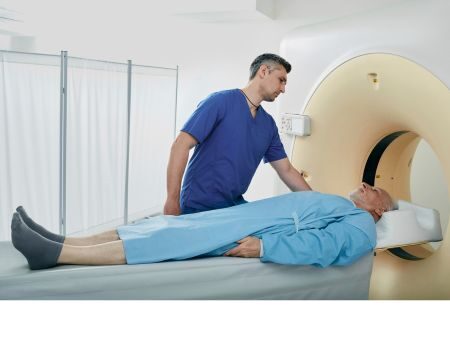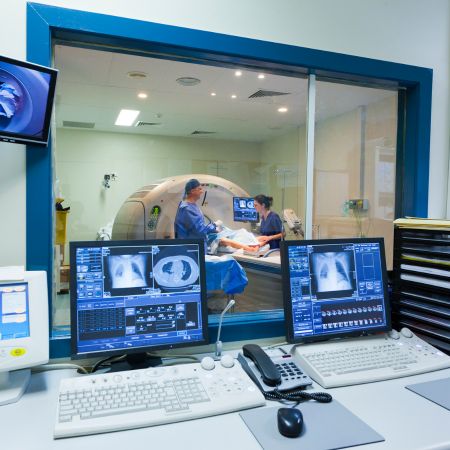I’ve Read About Them, But Should I Get a Total Body Scan?
Should you get a total body scan, either CT (Computed Tomography) or MRI (Magnetic Resonance Imaging) as a preventative health screen? While prevention is a good thing, these sophisticated tests are very sensitive to any abnormality. In this ONE Idea, we will discuss the difference between a CT and an MRI, what you should expect from the results, and explore a Case Study. If you have health concerns, then yes, you should have one completed but consider the timing. Is NOW the right time?

As the costs of these detailed imaging tools have dropped, there are more centers popping up to offer health screening and total body imaging scans that can be performed without medical necessity or a doctor’s order. All you need is money! These screening results can be a valuable tool in early detection of health issues before symptoms arise. Each of these studies has their own merit and each is extremely sensitive. In fact, they have coined the phrase “incidentalomas,” since they so often pick up incidental findings in the lungs, liver, and kidneys. If an abnormality is found, follow-up imaging or further testing needs to occur to confirm that the finding is in fact “incidental” and not a small pathologic growth. These findings can put the underwriting process for life insurance on hold until the follow-up testing or a further work-up rules out any mortality concern.
Timing is very important! It is better to get your life insurance policy in place prior to scheduling any total body screening MRI or CT scan. That just makes good practical sense!
Can These Scans Find Cancer?
The answer is yes, but they can also miss a small cancer so just getting a total body scan that is reported as negative should not relieve you of other routine cancer screening tests like a colonoscopy, pap, or mammogram.
What is the Difference Between a CT Scan and an MRI?
While both procedures are painless, the CT scan is faster and can be completed in less than 20 minutes. A CT scan involves radiation (like an X-ray), while an MRI involves radiofrequency waves and magnets so there is no radiation risk. The MRI is highly sensitive in imaging soft tissues, swelling, and tumors but takes nearly an hour and requires the patient to remain perfectly still. While that sounds tough, the facility will give you headphones that play music and sometimes a TV to distract you as the shifting magnets can be very loud and disconcerting.

Should I get a Total Body Scan?
Well, that decision is up to you. A total body scan, either CT or MRI, can offer you a comprehensive picture of your overall health and can identify early signs of disease before any symptoms present themselves. It can certainly be reassuring to have a “clean” total body scan but the sensitivity of these studies along with the incidental findings, can cause concerns for life insurance underwriters when any abnormalities show up.
Coronary Calcium Scores
A total body CT scan can document a coronary artery calcium score but only a more focused chest CT angiogram can quantify the calcium deposits and pinpoint their location – inside the coronary arteries or within the coronary artery walls. The calcium score is believed to correlate with coronary artery disease and that a higher calcium score presents as more risk for underwriting. However, we have seen high coronary artery calcium scores that do not represent coronary artery blockages of any blood flow because the calcium deposits occur inside the artery walls, and not inside the artery lumen.
While the coronary calcium score is a flag, it is not a diagnostic test. Further studies are often needed to determine this. It is certainly good preventative care to aggressively monitor anyone who has an elevated coronary calcium score with cardiac stress testing, echocardiograms, or other diagnostic tests. Elevated coronary calcium scores present underwriting issues for sure.
For more information on coronary calcium scores and coronary artery disease, please have a look at two of our articles from earlier this year: Coronary Artery Disease – Life Insurance Protection and Coronary Artery Disease – Diagnosing & Underwriting the Risk.

Bottom Line
Total body imaging studies, either CT or MRI, will give you a significant amount of information about your body. These tests can help your physicians detect serious diseases like cancer at early stages when they are more easily treated and potentially cured. However, these studies present underwriting concerns because of their sensitivity and often require 6-month or 1-year follow-up studies to see if any “changes” in the images have occurred. The best advice is to get your life insurance protection in place before having these screening studies performed! Once the life insurance protection is in effect, the testing can be done and, if normal, AgencyONE can go back into underwriting on the policy anniversary for a potential upgrade in the underwriting class with this new and comprehensive information.

Case Study
Mr. Jones applied for a large policy. He receives top-shelf concierge medical care that includes multiple screening tests for preventative care and longevity enhancements. One of these studies was a thyroid ultrasound that found a small growth (incidental), that was too small for biopsy criteria. His medical record shows a chart note for a follow-up repeat study in 1 year. That was 5 years ago, and Mr. Jones has had no specific thyroid follow-up. Since then, the client has had a total body MRI and a Galleri early detection cancer test* (a revolutionary and simple blood test that screens for over 50 cancers) that revealed no cancers, but the Galleri test does not include thyroid-specific testing yet. However, the Prenuvo Whole Body MRI scan from 8 months ago became a valuable tool in this underwriting process. The medical director at the carrier downgraded this risk to a STANDARD rate class (from Preferred BEST initial consideration) since no follow-up thyroid ultrasound was performed, and would not budge without a repeat test. AgencyONE pointed out that a total body MRI was performed within the past 12 months with no abnormal findings in the thyroid portion of the MRI report. We emphasized that an MRI is much more sensitive than an ultrasound. The file was reviewed again and finding no abnormality in the thyroid as we noted, the Medical Director allowed the case to be issued for $25 million at a PREFERRED BEST rate class!
AgencyONE is well-versed in the newest diagnostic technologies. We are available to help you and your clients navigate these new direct-to-consumer tests and to understand the consequences of having them.
Please contact the AgencyONE Underwriting Department at 301.803.7500 for more information or to discuss a case.
*The Galleri early detection cancer test is a blood test that can detect more than 50 types of cancers – many of which have no other available diagnostic screenings yet. With a negative Galleri screening result, an insured can get life insurance underwriting credits for good health! This innovative test is available to our AgencyONE 100 advisors at a deeply discounted rate. Please contact the Marketing Department at 301.803.7500 for more information.




